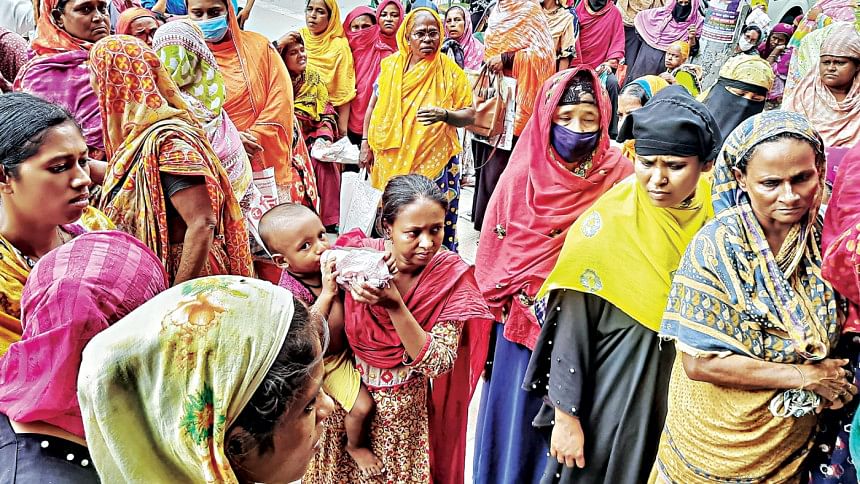51pc of Dhaka’s poor are new

Fifty-one percent of the capital's poor people had slid into poverty because of the lingering fallout from the coronavirus pandemic, according to a survey by Bangladesh Institute of Development Studies.
The survey conducted on 2,046 households said 22.24 percent of Dhaka city's population was poor in 2022 and more than half of the poor people were "new poor".
The capital city currently has a population of over 1.02 crore, according to Bangladesh Bureau of Statistics data from last year.
Addressing the BIDS Research Almanac 2023 at a hotel yesterday, the institute's Director General Binayak Sen said, "Evidence shows that the new poor, as a new social category, is emerging as a result of the Covid-19 pandemic."
Steps must be taken to keep people from becoming poor, he said while presenting a paper titled "Urban Poverty Dynamics During Covid-19: Anatomy of Resilience".
He added that from 2019 to 2022, the number of poor people in the capital fell by 4.3 percentage points from 26.54 percent.
Besides, the proportion of extremely poor households declined from 17.01 percent to 13.83 percent during the period.
The reduction of poverty happened due to self-employment, social safety net programmes and charity, and utilisation of savings by individuals, Binayak Sen said.
He said digital technology like mobile financial services played a positive role in creating self-employment.
During the pandemic, some researchers said the number of poor people doubled, he said, adding that their studies were done in a hurry.
But the BIDS study found that poverty increased in the first few months of the pandemic and then started to decline, he added.
He said digital technology like mobile banking services played a positive role in creating self-employment.
"However, the number of new poor rose, and the government should work on it."
Planning Minister MA Mannan said disparity was rising as the economy was growing.
The government is trying to reduce disparity through social safety net programmes that directly benefit the poor, he added.
Thanks to government initiatives, extreme poverty has fallen, he added while addressing the event as the chief guest.
Satyajit Karmaker, secretary at the planning ministry, also spoke at the event.

 For all latest news, follow The Daily Star's Google News channel.
For all latest news, follow The Daily Star's Google News channel. 



Comments